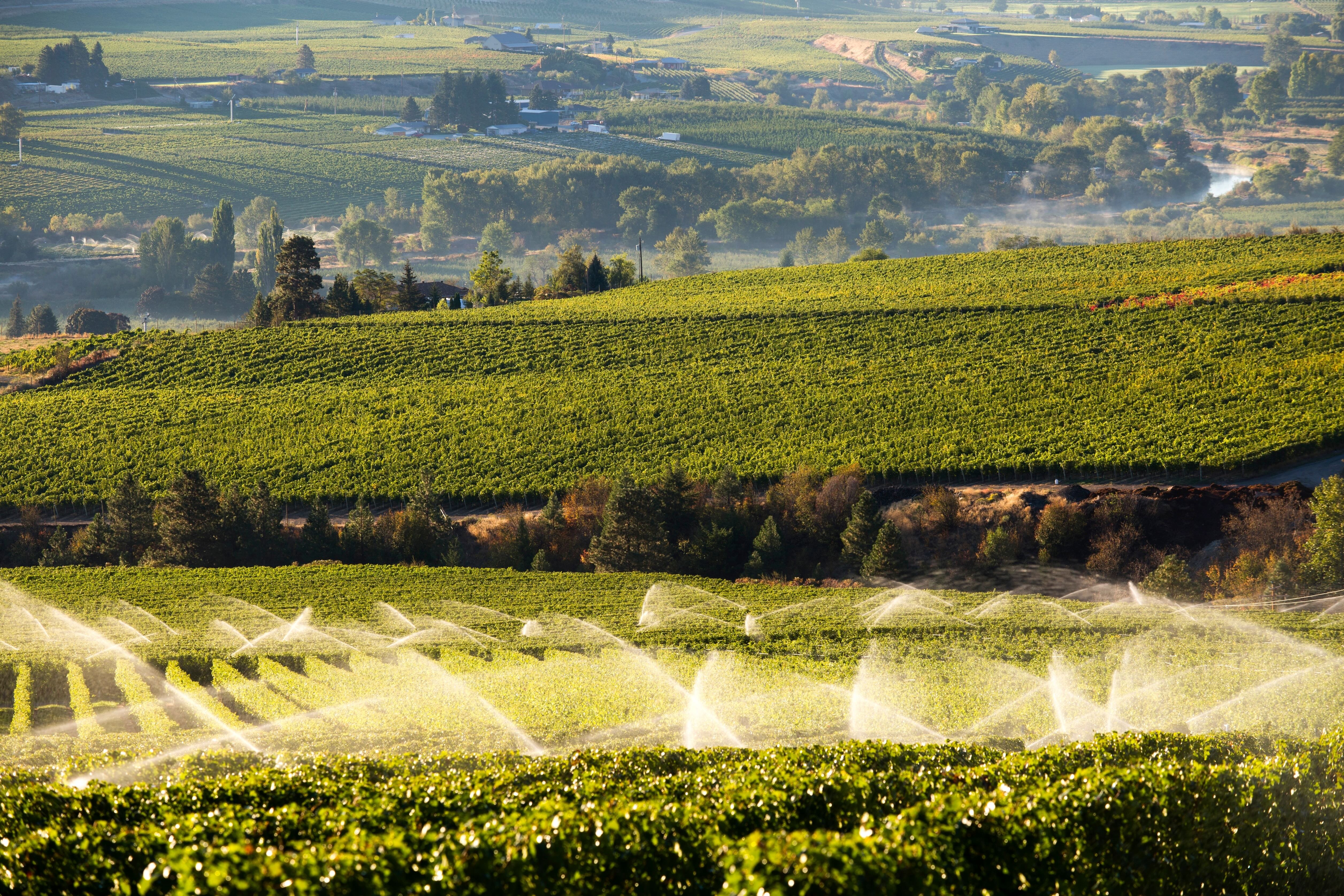Redefining Precision Irrigation
Precision irrigation, once synonymous with any irrigation method more advanced than flooding, now demands a contemporary definition. Traditionally, precision irrigation referred to field or block-level irrigation controlled by automated systems, but in 2024, this term is entering a new paradigm and needs a reexamination. Verdi believes that true precision irrigation should encompass sub-block, row, and plant-level irrigation, offering a higher degree of precision, control and efficiency.
What is Precision Irrigation?
Precision irrigation in agriculture involves using advanced technologies and systems to deliver water and nutrients precisely to crops. This method employs sensors, irrigation systems, and fertigation techniques to ensure that plants receive the right amount of water and nutrients at the right time and place, optimizing growth and minimizing waste.
Verdi's Vision for Precision Irrigation
Verdi believes that the current concept of precision irrigation is outdated. Traditional precision irrigation, focusing on large multi-acre blocks controlled manually or via automated systems, does not fully utilize the potential of modern technology. Verdi's approach includes sub-block, row, and plant-level irrigation, providing unparalleled control and efficiency.
Benefits of Precision Irrigation at the Sub-Block, Row, and Plant-Level
- Optimized Crop Growth and Yield: By delivering the exact amount of water and nutrients needed at a granular level, crop productivity and efficiency are significantly improved.
- Water and Fertilizer Savings: Precision at the plant level reduces unnecessary applications, leading to substantial cost savings and enhanced environmental sustainability.
- Minimized Runoff and Soil Erosion: Targeted watering at sub-block and row levels preserves soil integrity and prevents nutrient leaching.
- Disease and Weed Reduction: Maintaining proper moisture levels avoids conditions that foster weeds and pathogens.
- Customized Plant Care: With the ability to monitor soil moisture in real time and address the specific needs of each plant, growers can better manage irrigation, crop health and stress, resulting in higher quality yields.
- Climate Adaptation: Precision irrigation can mitigate the effects of extreme weather events, such as heat waves and frosts, by providing precise water management to protect plants during these critical times. Verdi’s technology can predict and monitor in real-time and respond to climate conditions, applying water and nutrients in ways that buffer plants against temperature extremes.
Sustainable Farming Needs To Be Water-Efficient Farming
In a world grappling with water scarcity and climate change, water-efficient farming practices are crucial for food security. Agriculture consumes about 70% of the world's freshwater, making efficient water use essential. Precision irrigation plays a vital role in achieving this efficiency by improving water use efficiency through precise application, minimizing evaporation and runoff. By implementing advanced irrigation technologies, farmers can ensure sustainable water use, which is particularly critical in regions facing severe water stress.
Expanding Water Efficiency
Verdi’s precision irrigation systems contribute to significant water savings and promote sustainable agriculture. For instance, Verdi's technologies have saved over 7 million liters of water for farmers in 2022 alone. This is equivalent to 14 million bottles of water, highlighting the substantial impact on water conservation. Furthermore, Verdi’s systems are designed to retrofit existing irrigation systems, making it easier and more cost-effective for farmers to adopt water-efficient practices without the need for expensive overhauls.
Efficiency in Plant Nutrition
Proper nutrition is essential for crop growth and development. Precision irrigation allows for the accurate delivery of nutrients directly to the roots through fertigation, enhancing overall plant health and productivity. This leads to improved crop quality, increased yields, and reduced environmental impact. By ensuring plants receive the right balance of nutrients, precision irrigation can optimize growth conditions and reduce the likelihood of nutrient losses, further contributing to environmental sustainability.
The Role of Verdi in Precision Irrigation
Verdi's technology aligns with the principles of modern precision irrigation, offering scalable solutions for farmers that are tailored to individual plant needs. By leveraging cutting-edge technology, Verdi addresses water scarcity and climate change challenges in agriculture. Verdi’s platform integrates various data sources, including weather data, soil moisture, and NDVI imagery, to facilitate precise irrigation and fertigation, enhancing farm productivity and sustainability.
The Future of Farming
Precision irrigation represents a significant leap forward in sustainable farming. These technologies play a crucial role in conserving vital resources, reducing agriculture’s environmental impact, and securing a food-sufficient future. As advancements continue, Verdi's solutions will support a more sustainable and productive agricultural landscape.
In conclusion, redefining precision irrigation to include sub-block, row, and plant-level techniques, as demonstrated by Verdi, offers a promising path toward achieving global food security and environmental sustainability. As the agricultural sector adapts and evolves, precision irrigation's importance will grow, marking a new frontier of efficiency and responsibility in farming practices.

.jpg)

.jpg)
